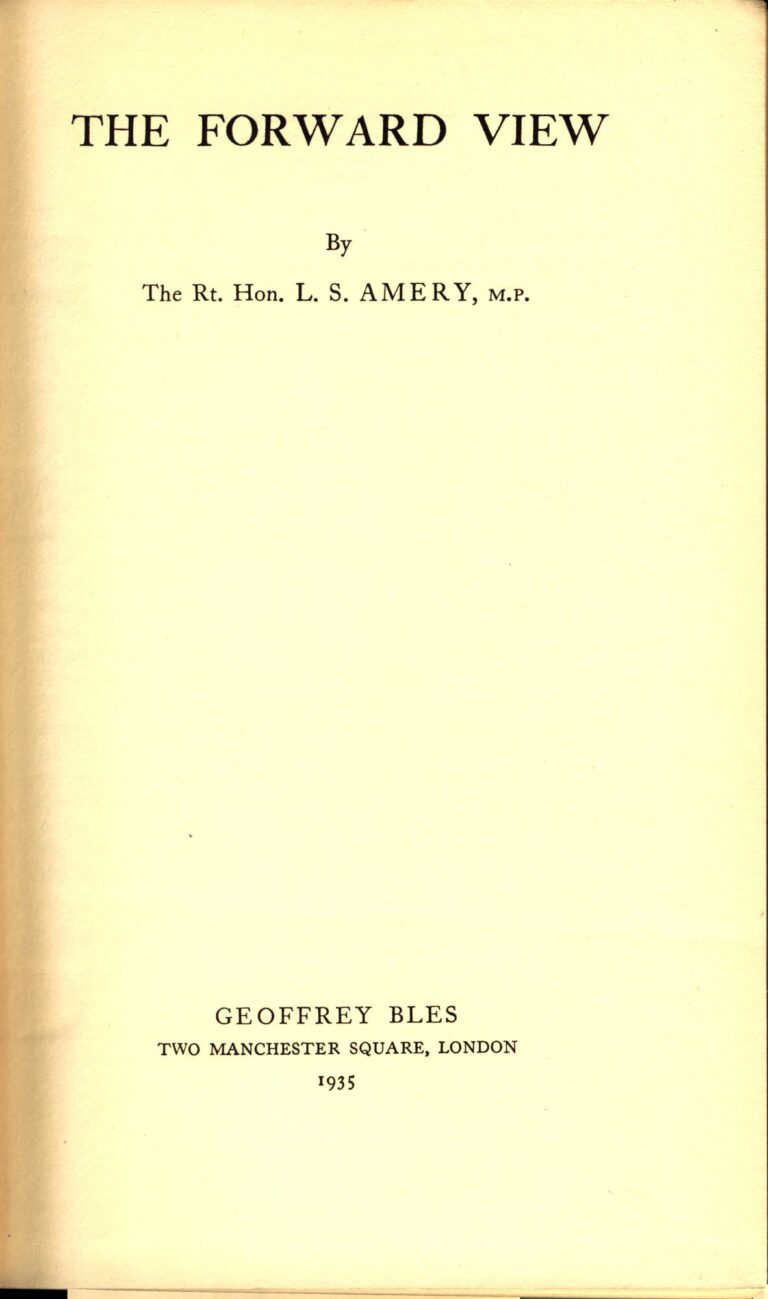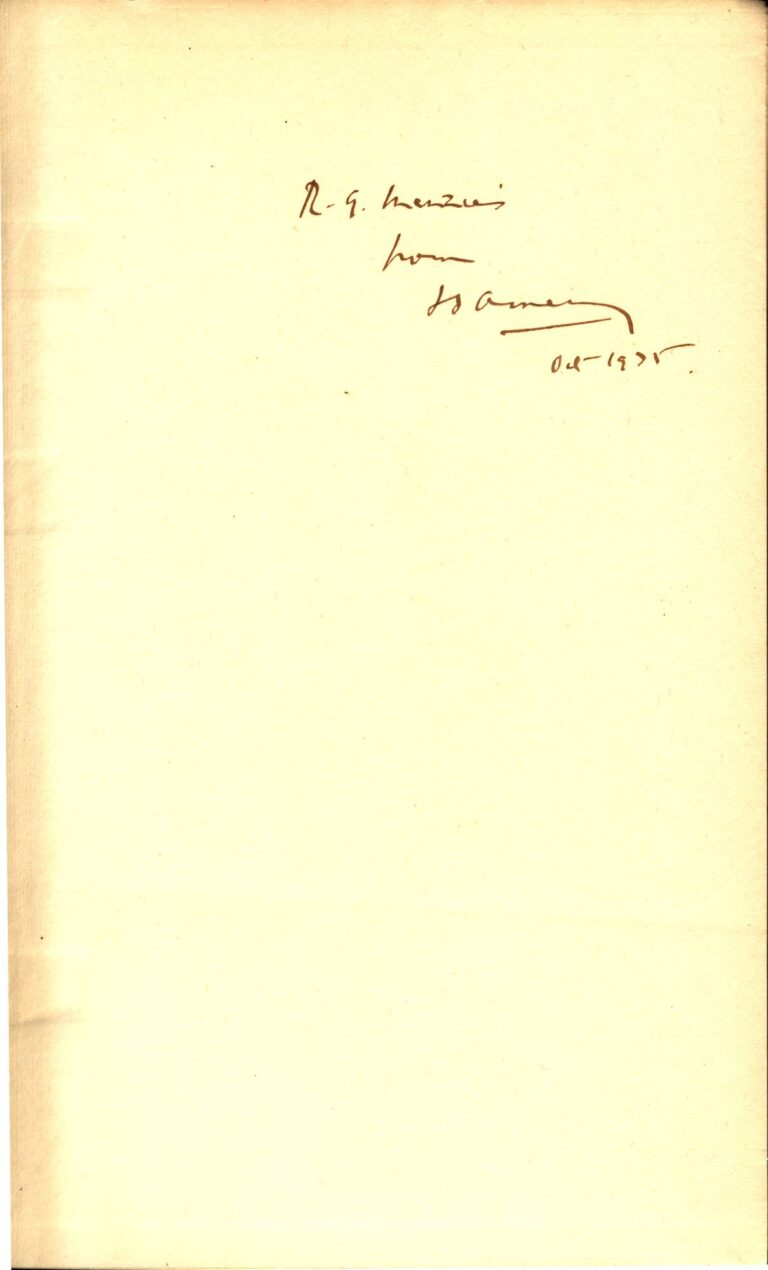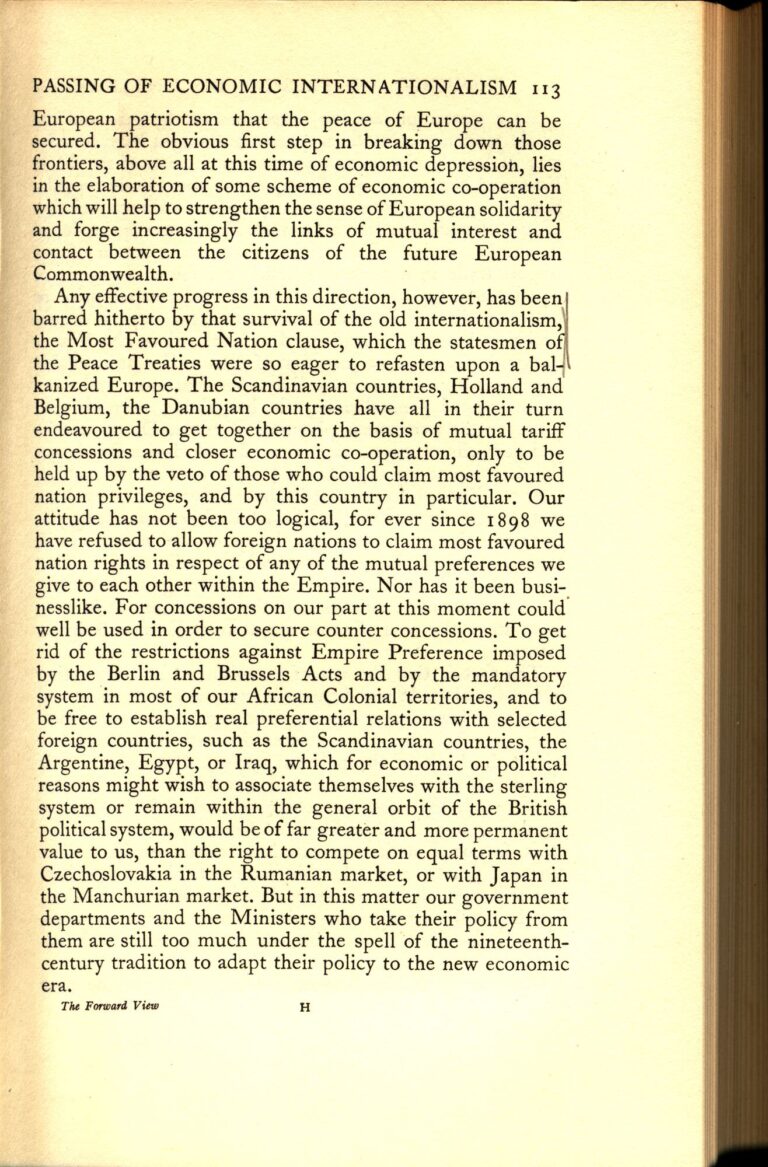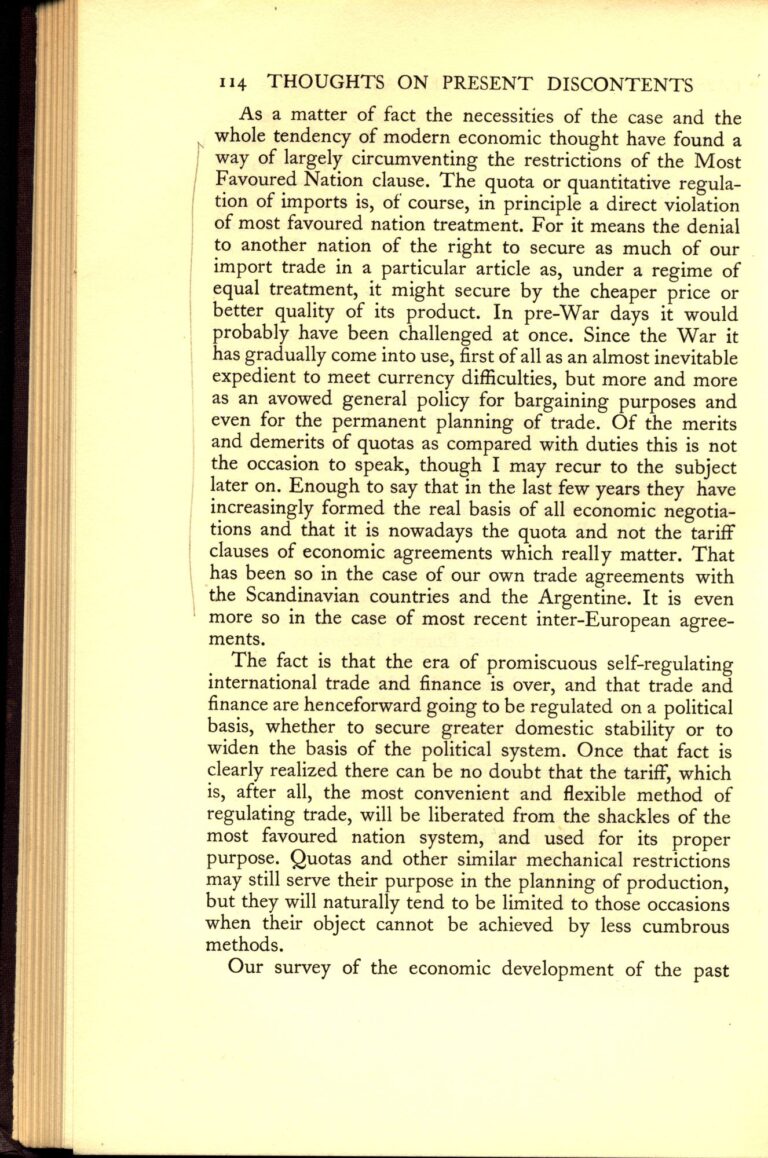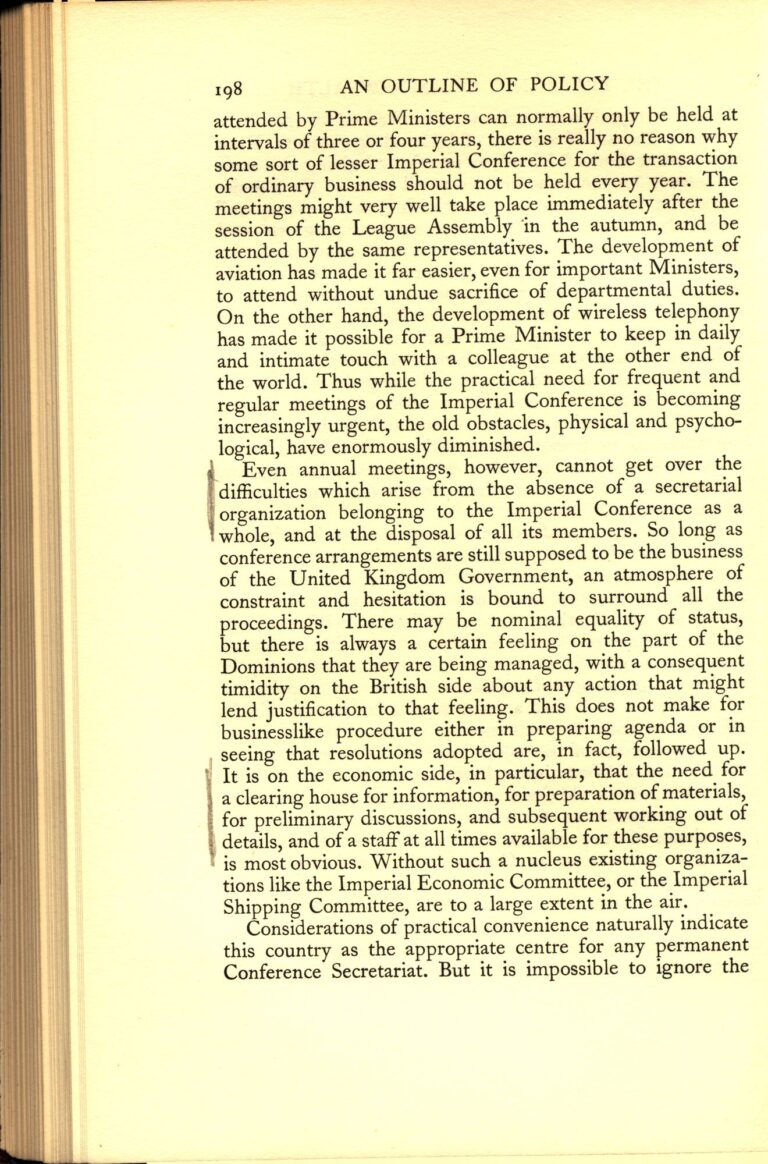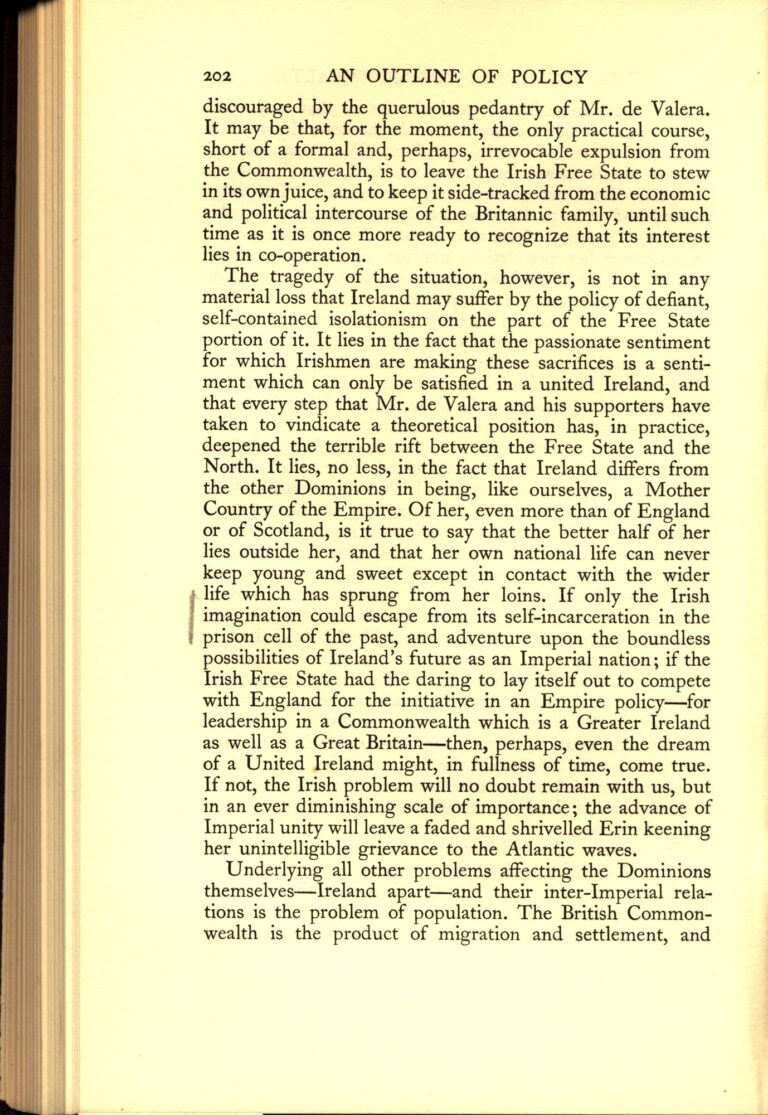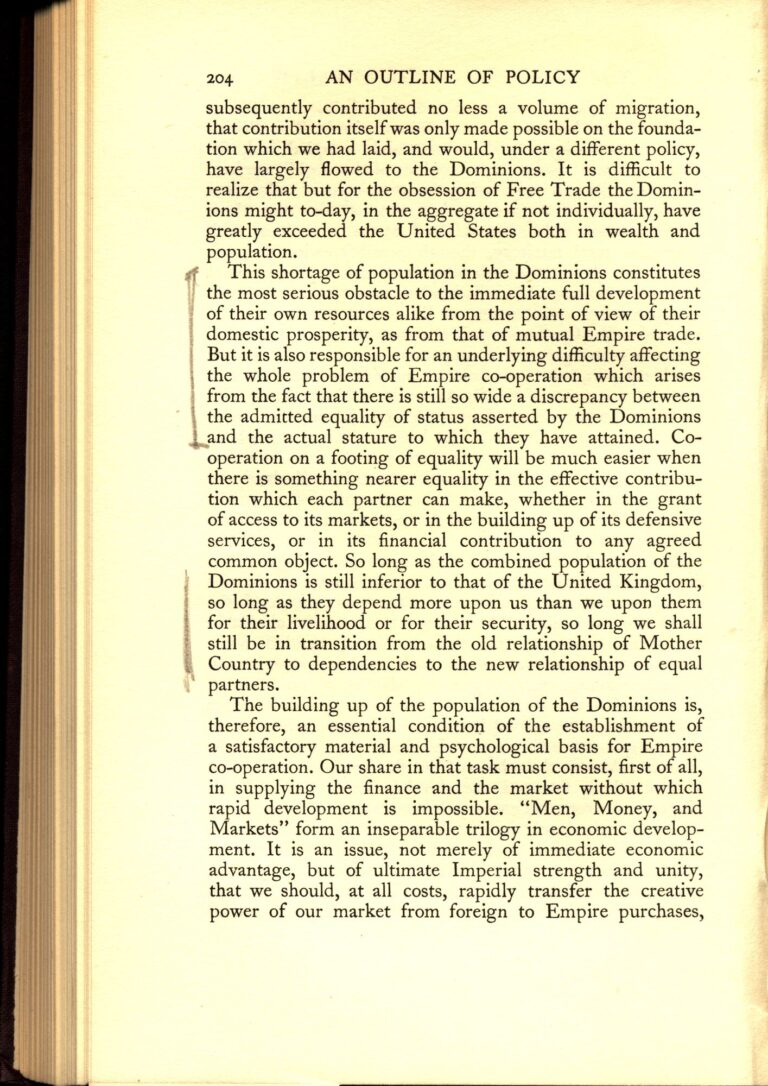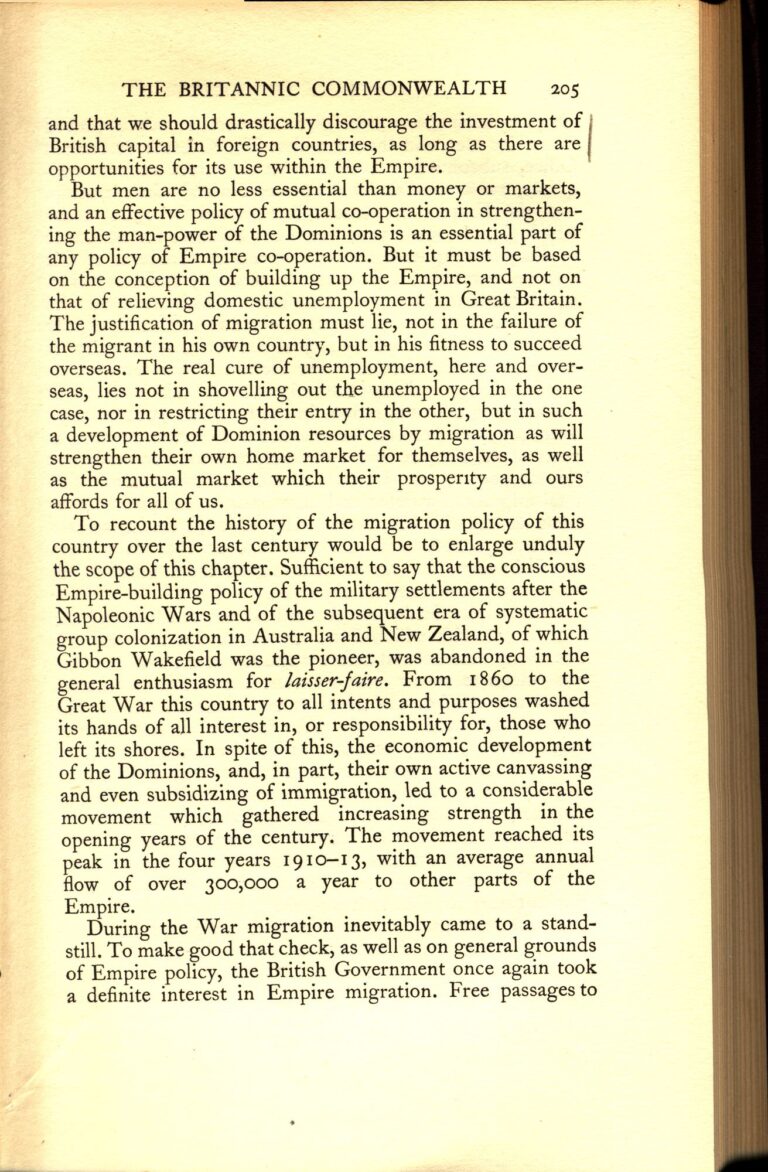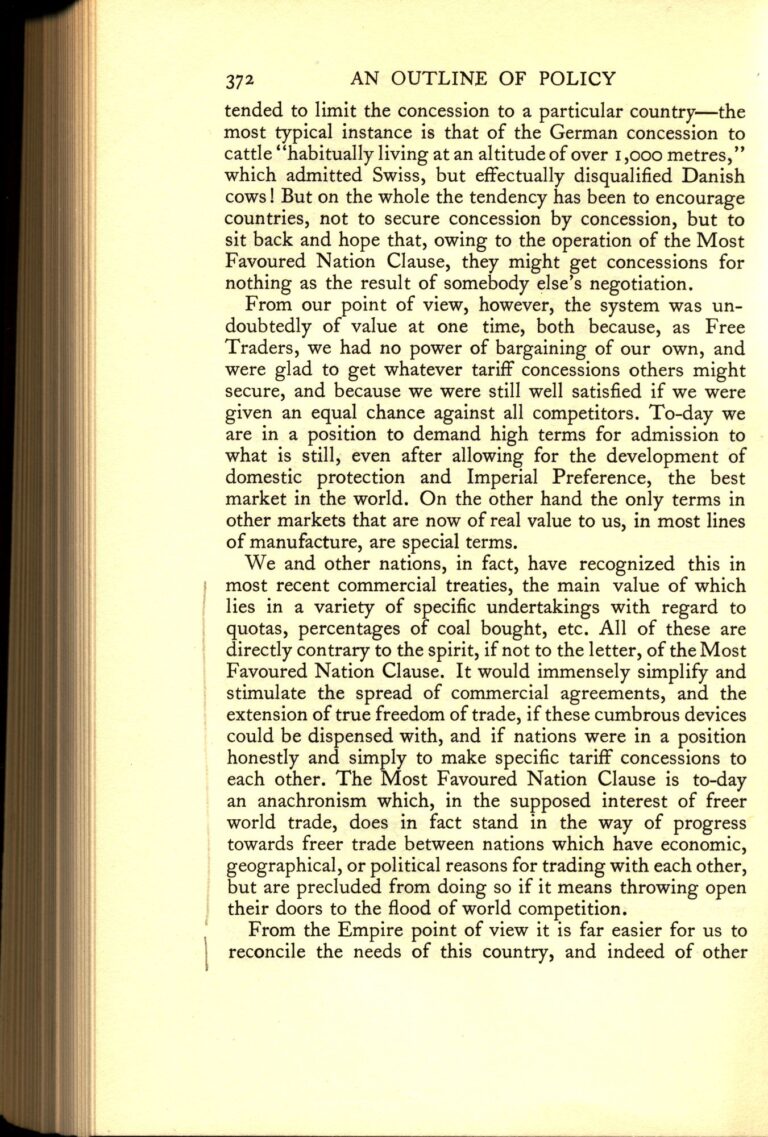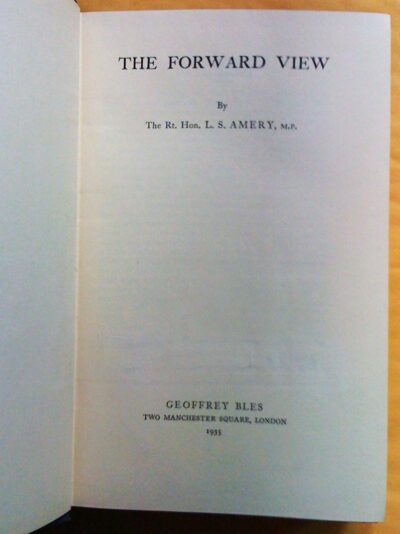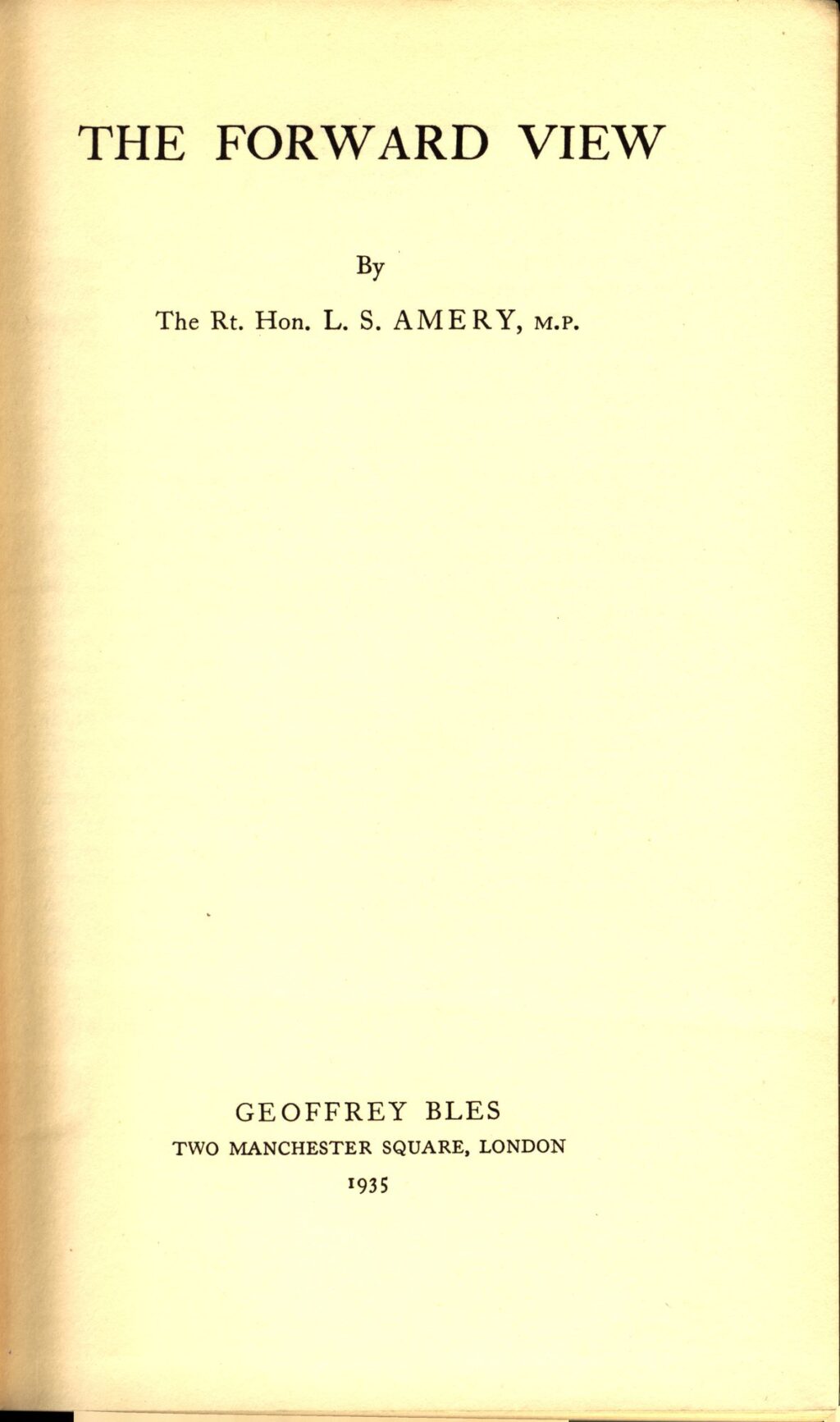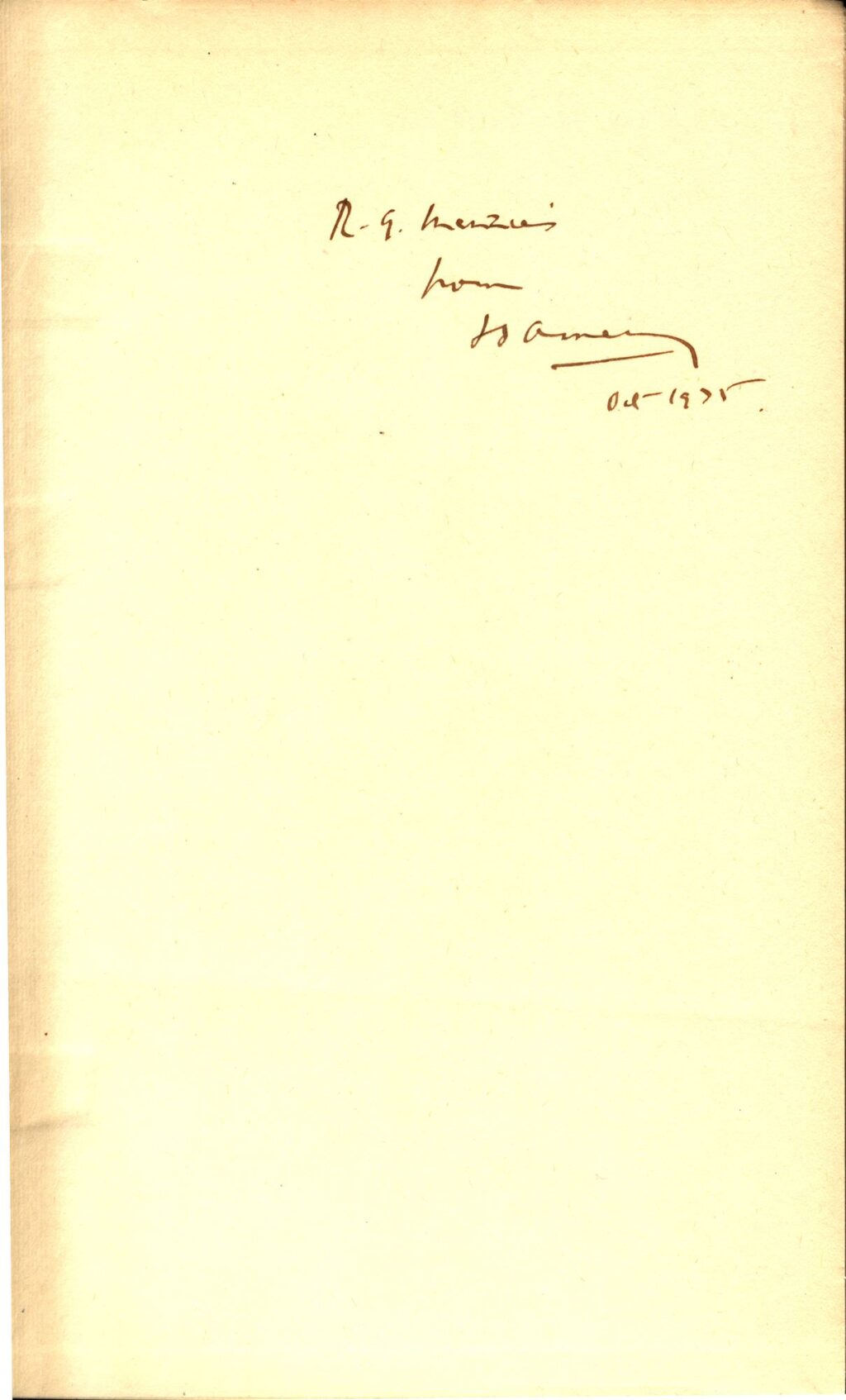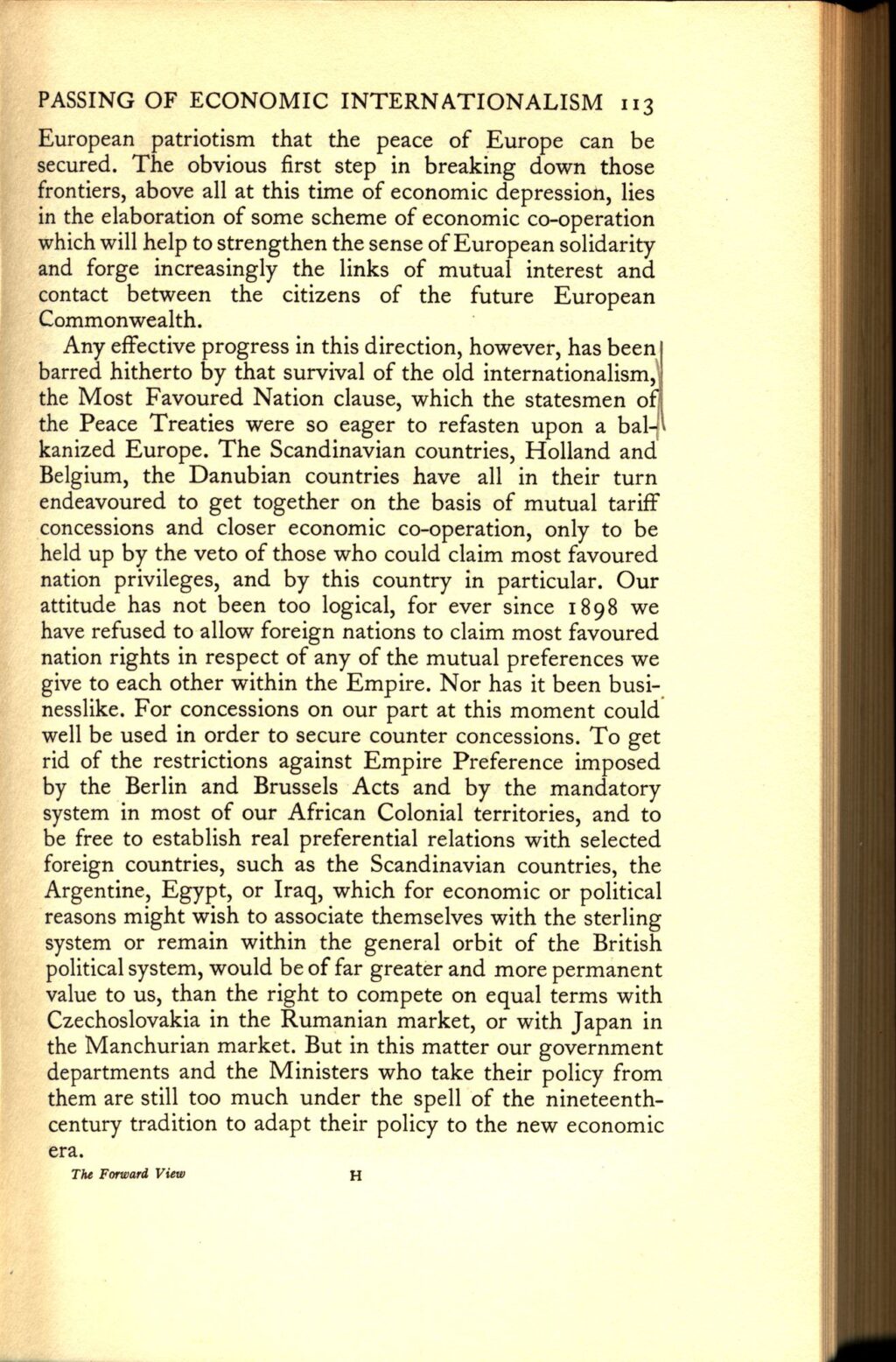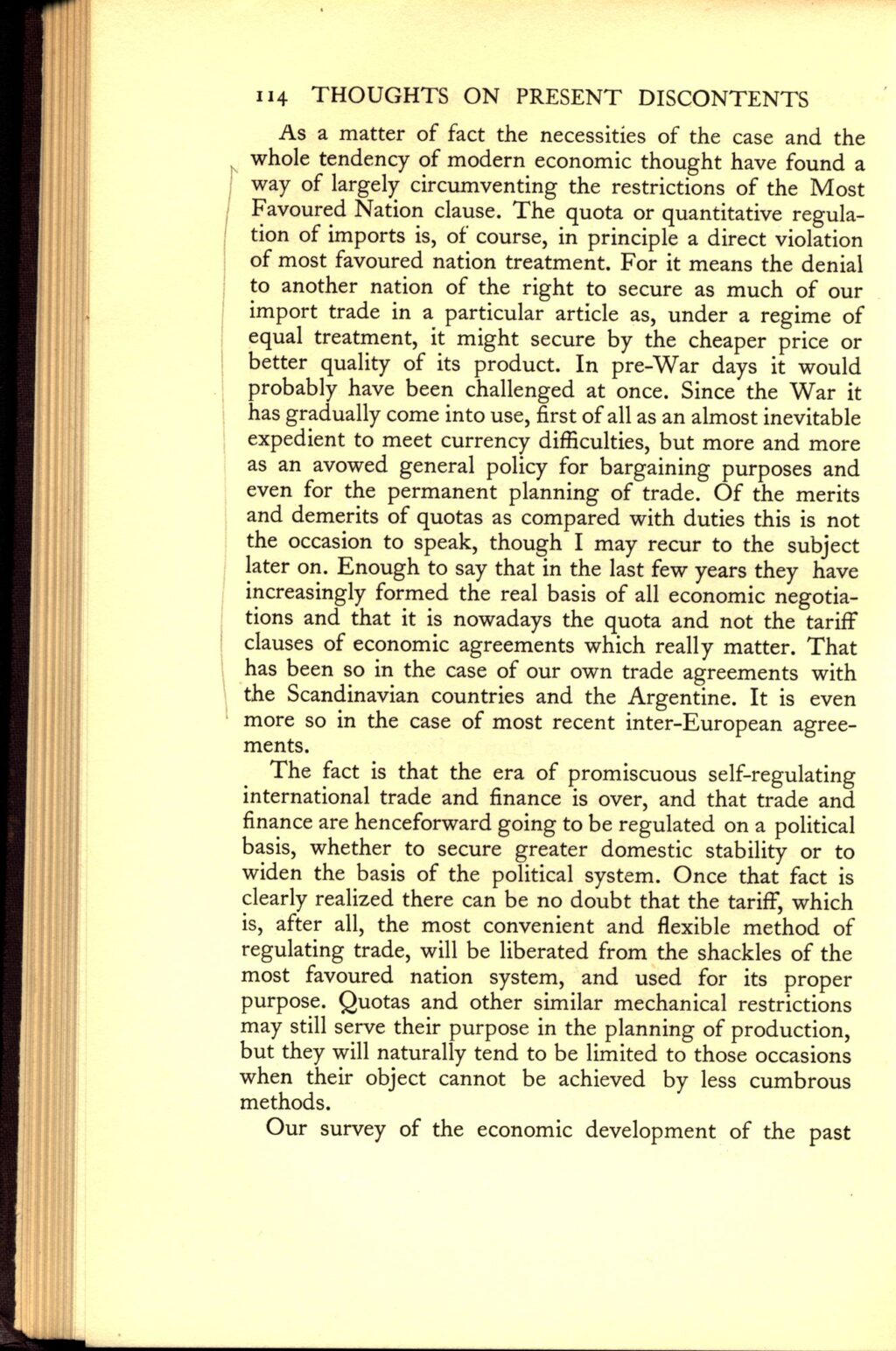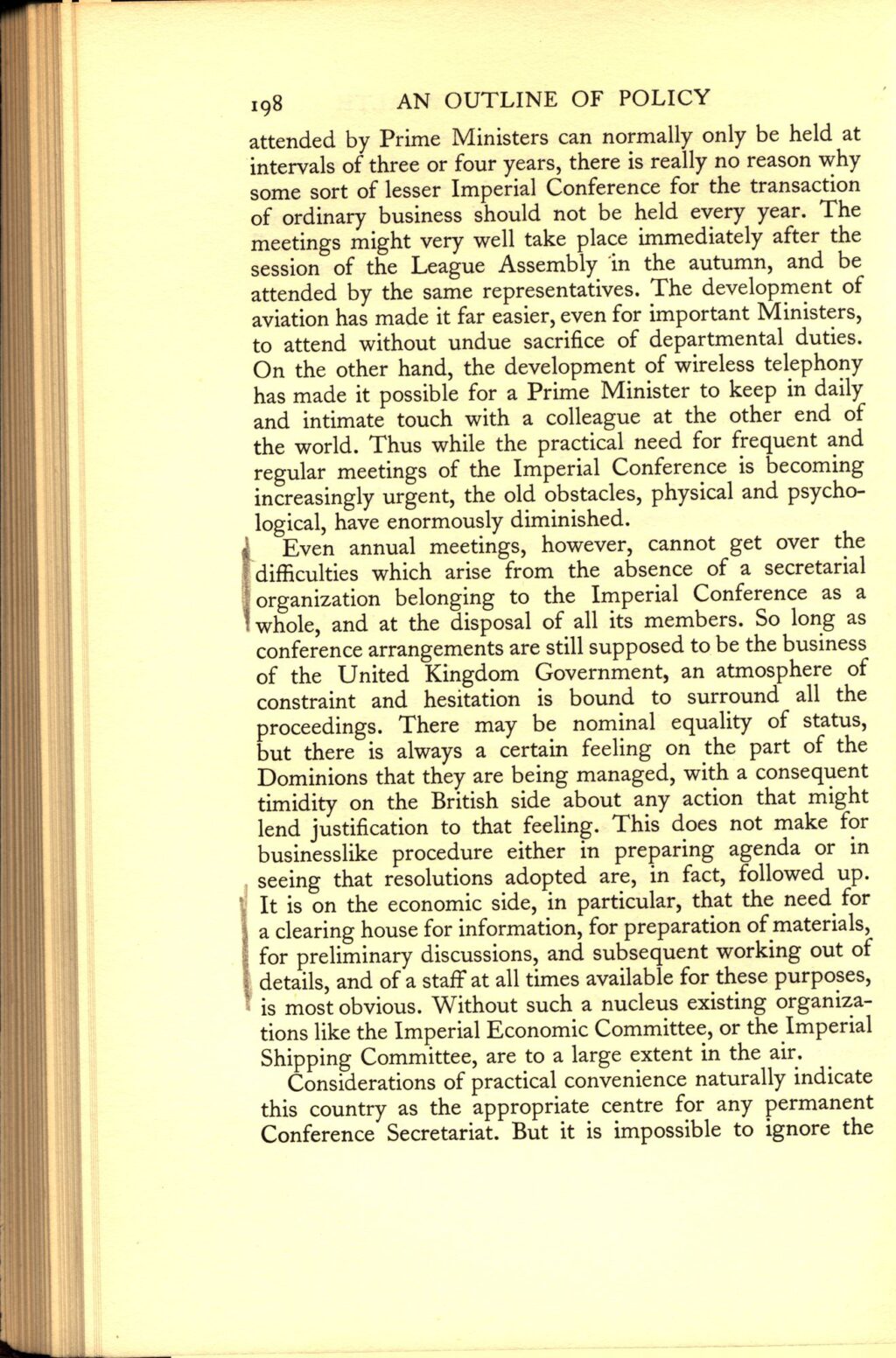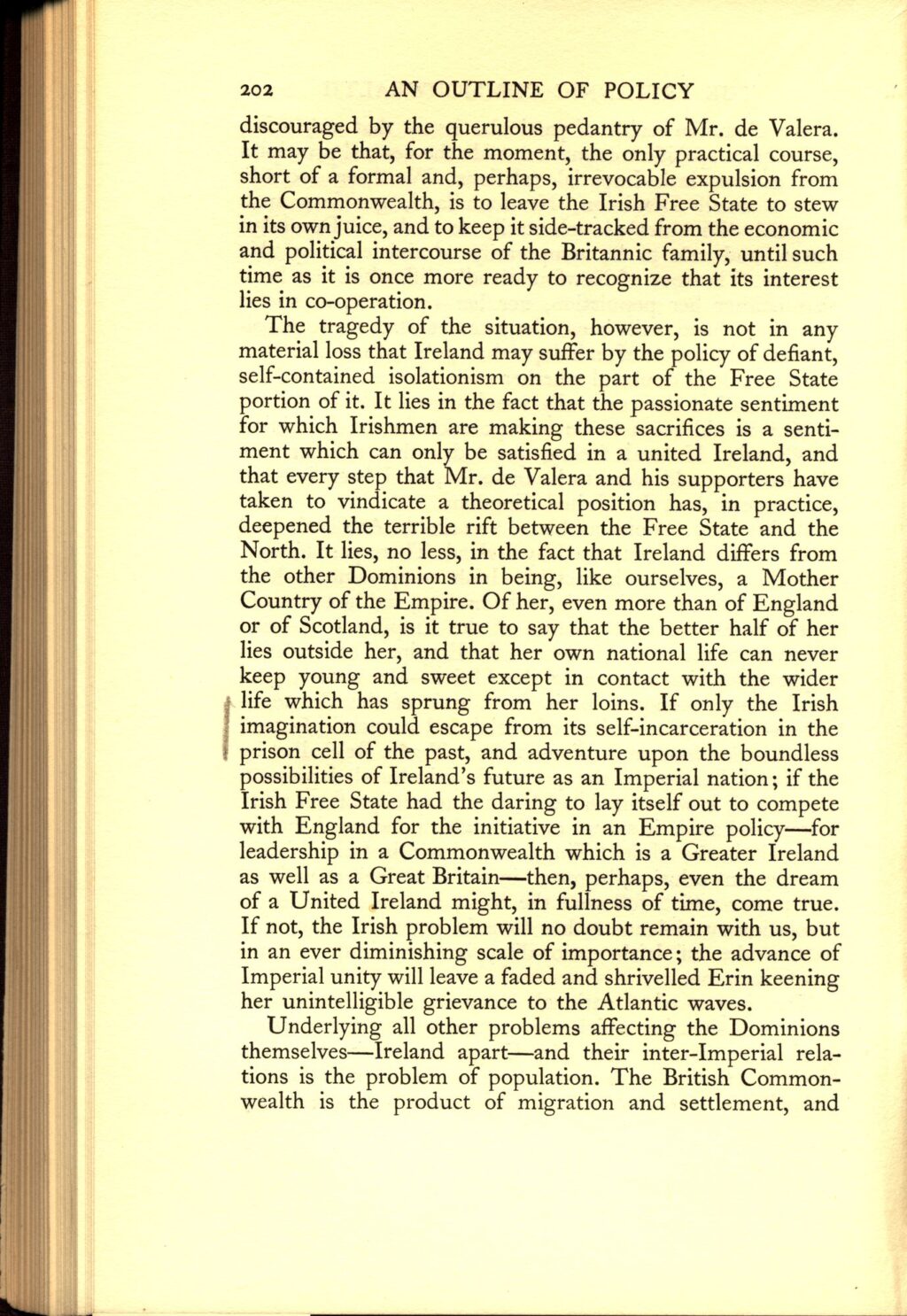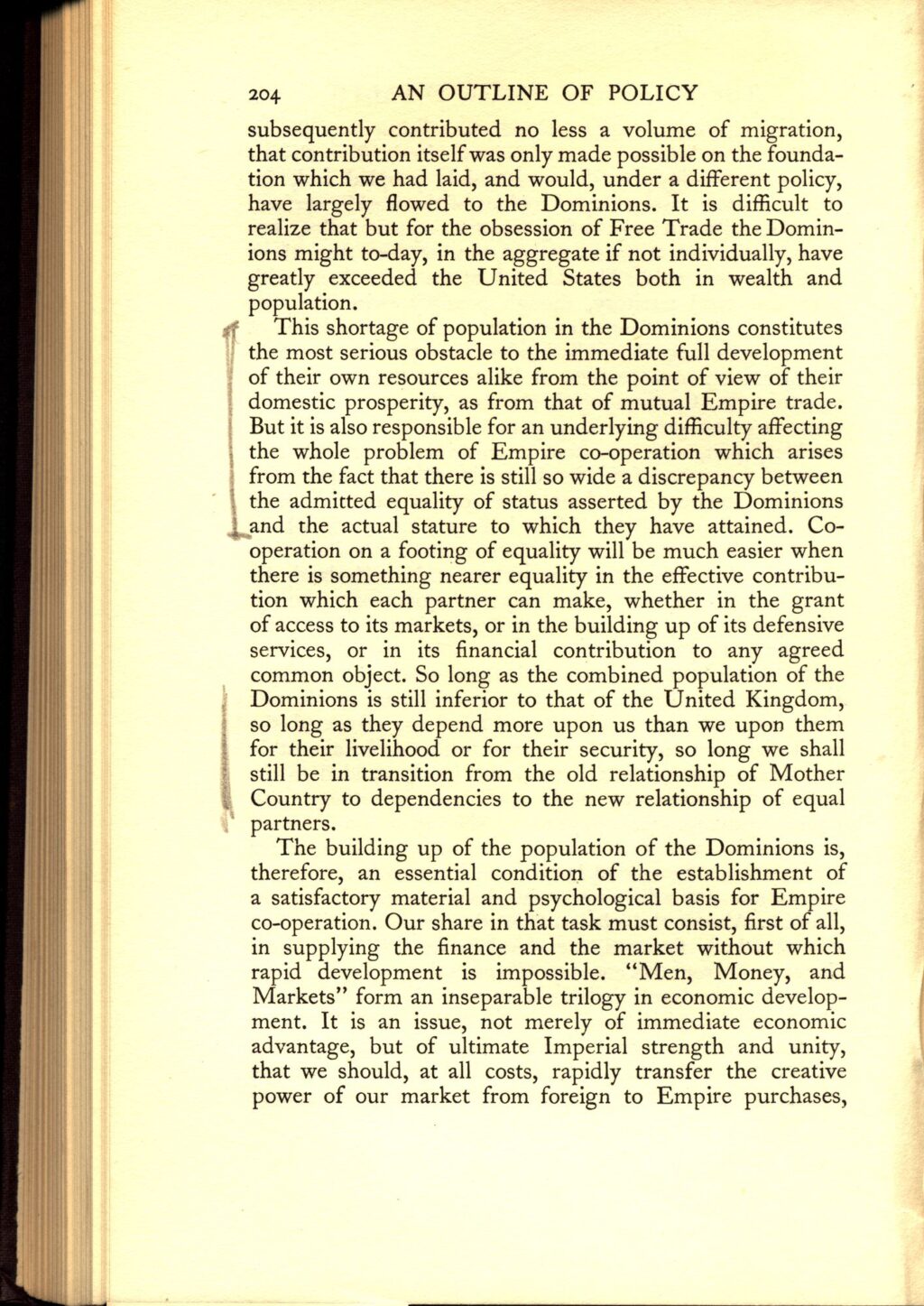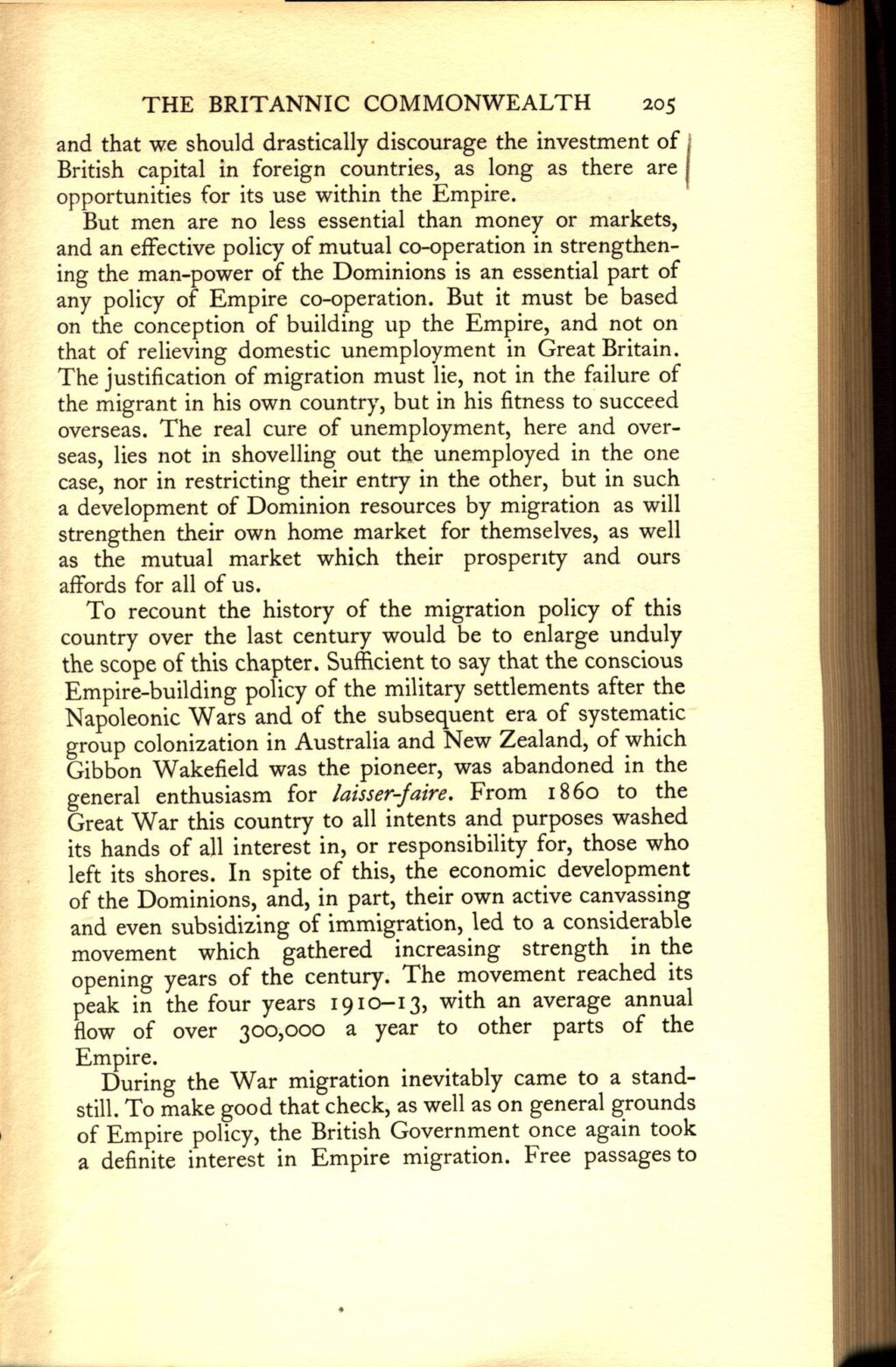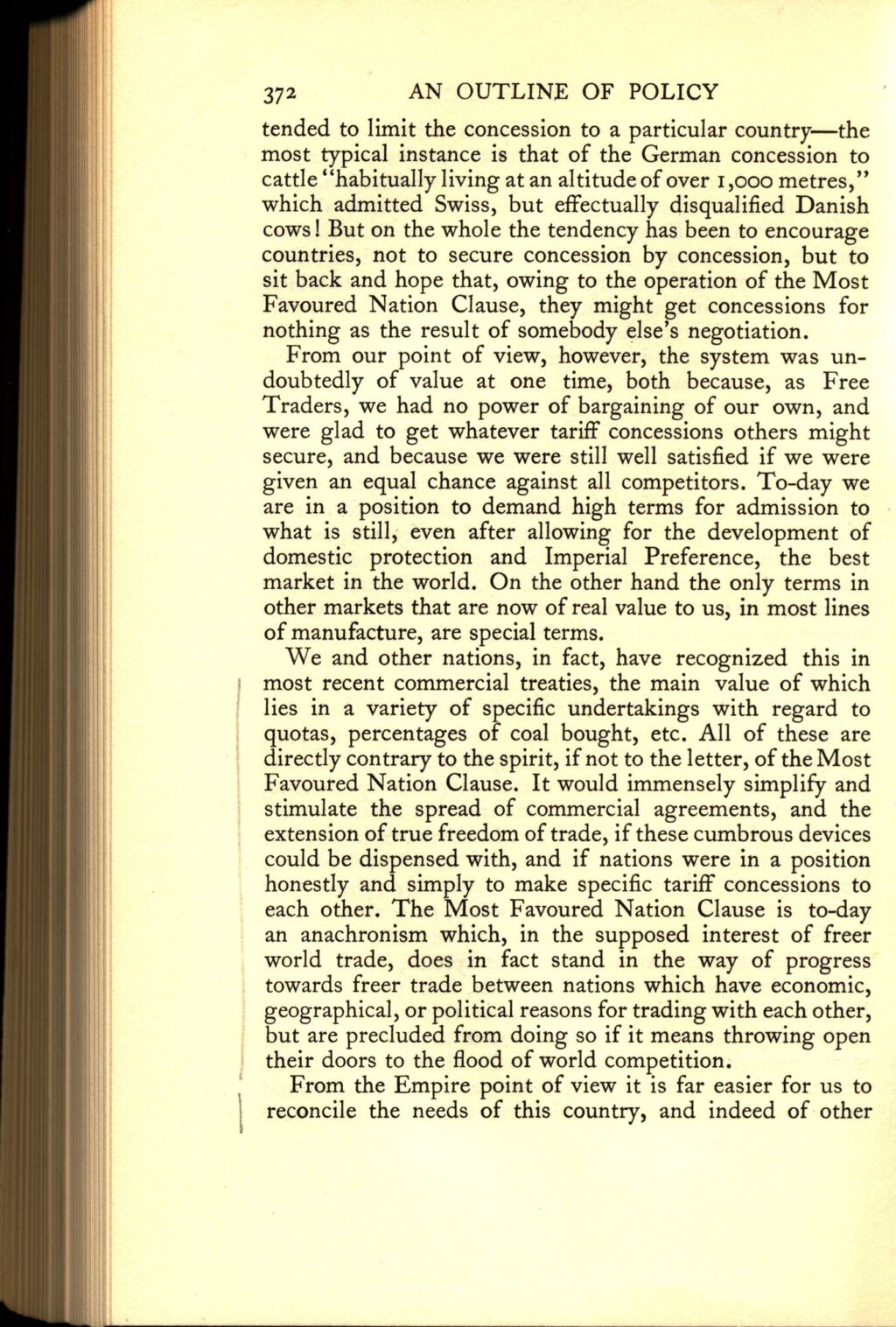| Entry type: Book | Call Number: 2144 | Barcode: 31290036130672 |
-
Author
Amery, L. S. (Leopold Stennett)
-
Publication Date
1935
-
Place of Publication
London
-
Book-plate
No
-
Summary
Inscription: October 1935.
-
Edition
First
-
Number of Pages
464
-
Publication Info
hardcover
Copy specific notes
Bookplate inserted; inscribed in brown ink on front endpaper: “R.G. Menzies from L.S. Amery. Oct 1935.” Several passages highlighted in pencil and several pages earmarked including: [p. 112] earmarked; [p. 113] “Any effective progress in this direction, however, has been barred hitherto by that survival of the old internationalism, the Most Favoured Nation clause, which the statesmen of the Peace Treaties were so eager to refasten upon a balkanized Europe.”; [pp. 204] “This shortage of population in the Dominions constitutes the most serious obstacle to the immediate full development of their own resources alike from the point of view of their domestic prosperity, as from that of mutual Empire trade. But it is also responsible for an underlying difficulty affecting the whole problem of Empire co-operation which arises from the fact that there is still so wide a discrepancy between the admitted equality of status asserted by the Dominions and the actual stature to which they have attained […] So long as the combined population of the Dominions is still inferior to that of the United Kingdom, so long as they depend more upon us than we upon them for their livelihood or for their security, so long we shall still be in transition from the old relationship of Mother Country to dependencies to the new relationship of equal partners.”; [p. 205] “We should drastically discourage the investment of British capital in foreign countries, as long as there are opportunities for its use within the Empire.”; [p. 280] earmarked; [pp. 372 – 374] earmarked and passages on problems of the Most Favoured Nations clause highlighted, i.e. [p.374]: “It is no exaggeration to say that the Most Favoured Nations Clause to-day is, more than any other factor, holding back the prospects of peace and prosperity in that quarter.”; [p. 417 – 421] several passages on education and tax reform highlighted; [p. 429] “Even more unpractical is the notion that working hours can be fixed by international agreement. The customs of different nations, their temperament at their work, their interpretation of any set of rules laid down will always be so different as to make any agreement a farce. The whole movement, indeed, for the international regulation of working hours is out of date […] It is really irrelevant to a world in which national standards, whether of hours or wages, will be maintained by fiscal policy, and in which exports will, in the main, be confined to markets sheltered by preferential treaties.”; [p. 430] “For all that it is a man’s working hours and not his leisure that are, or should be, his real life. The conception of a life in which the greater part is devoted to some uninteresting and inherently distasteful form of drudgery in order to secure the means for a real life in between, or afterwards, is a degrading one – as degrading for the would-be millionaire as for the labourer.”
You might also like...
Sign up to our newsletter
Sign up for our monthly newsletter to hear the latest news and receive information about upcoming events.

